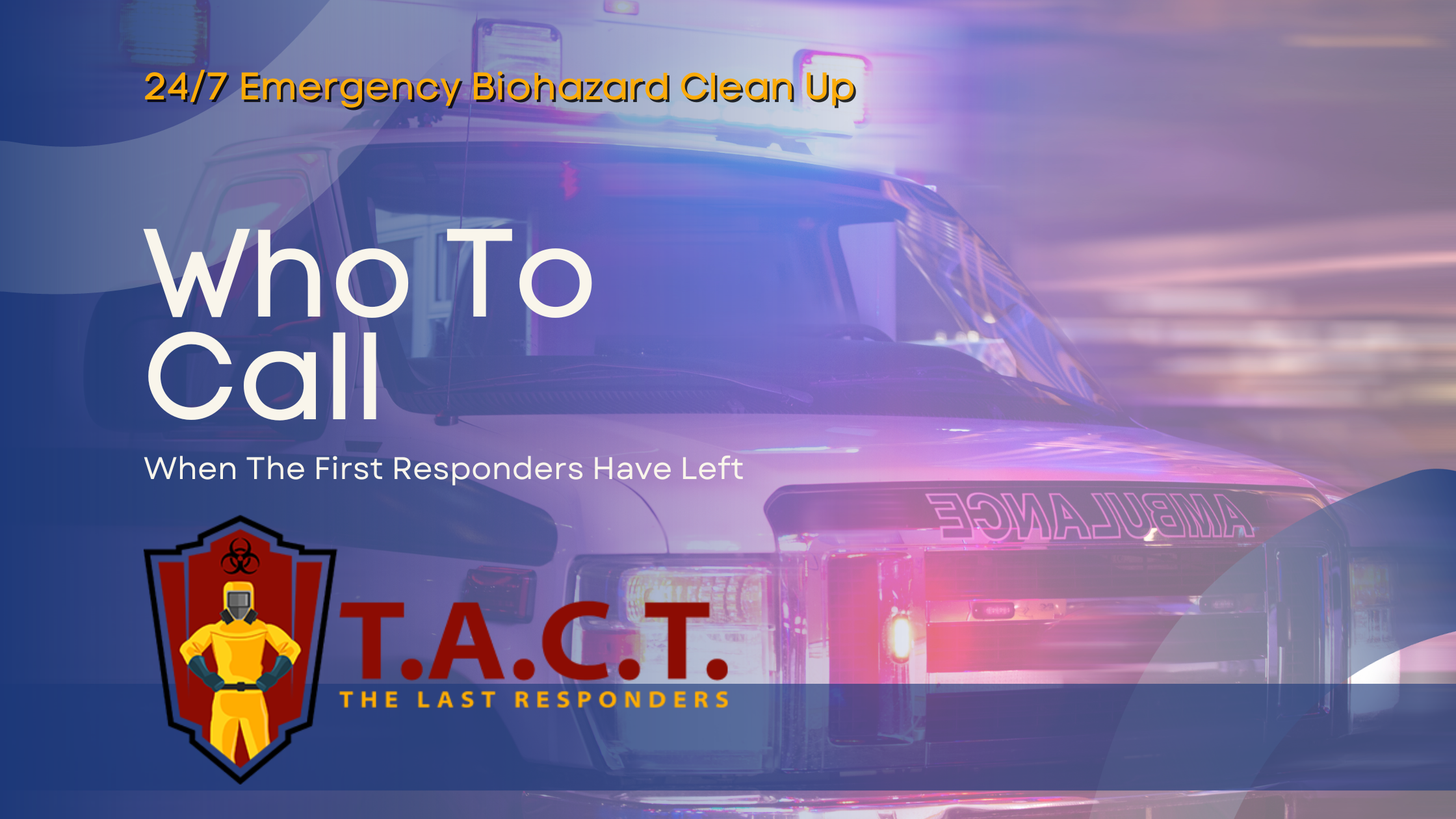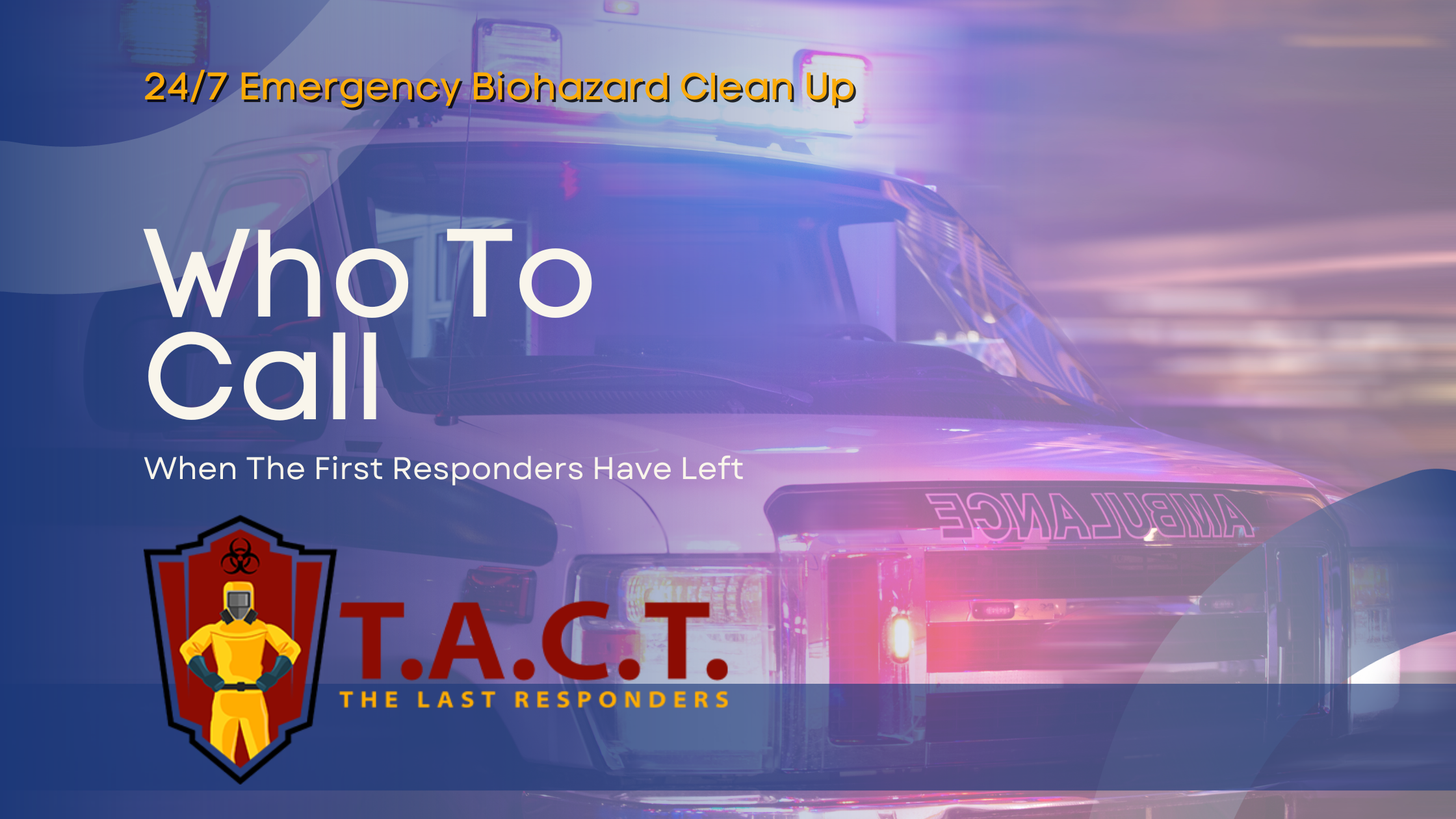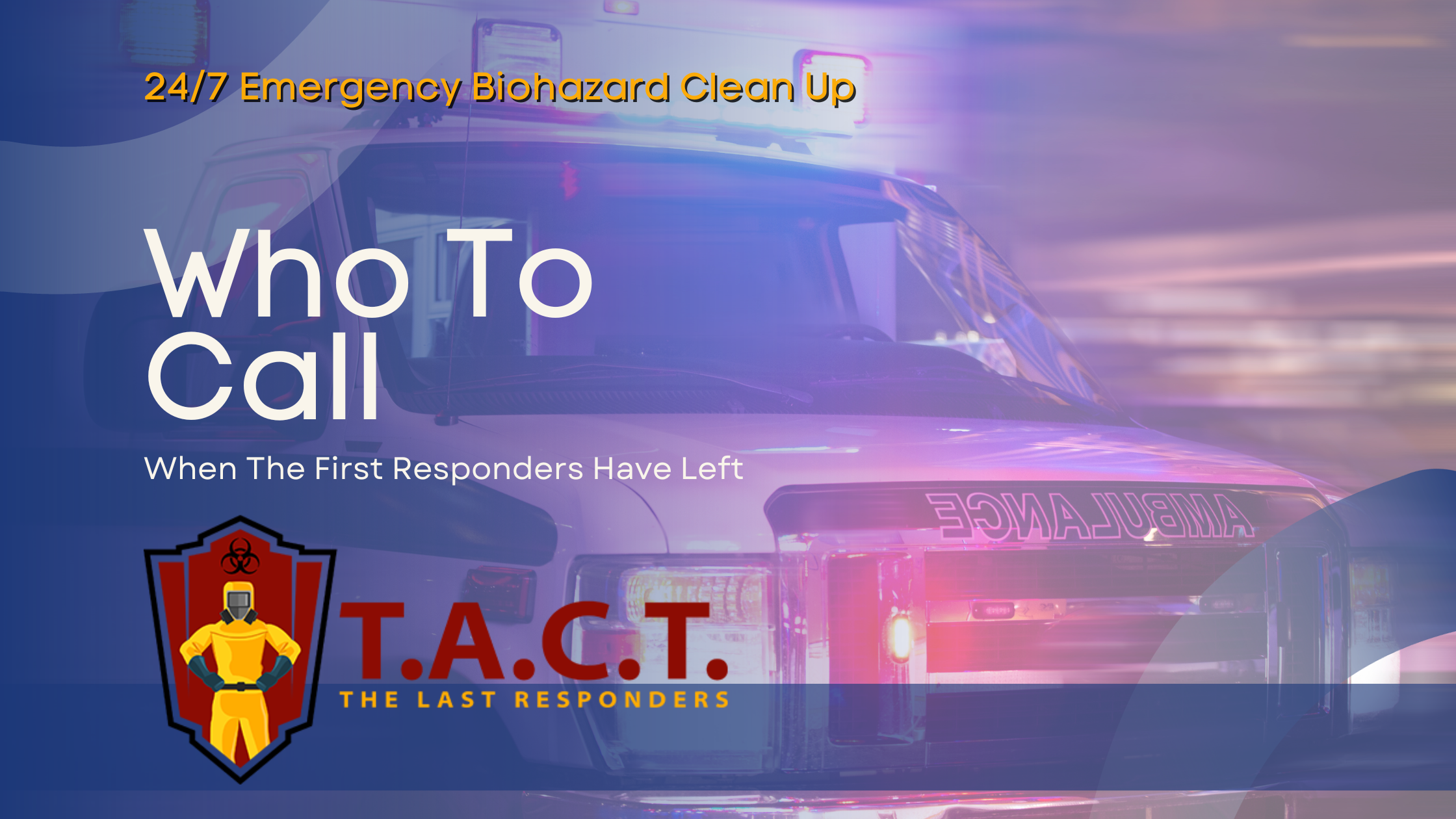forensic cleaning service
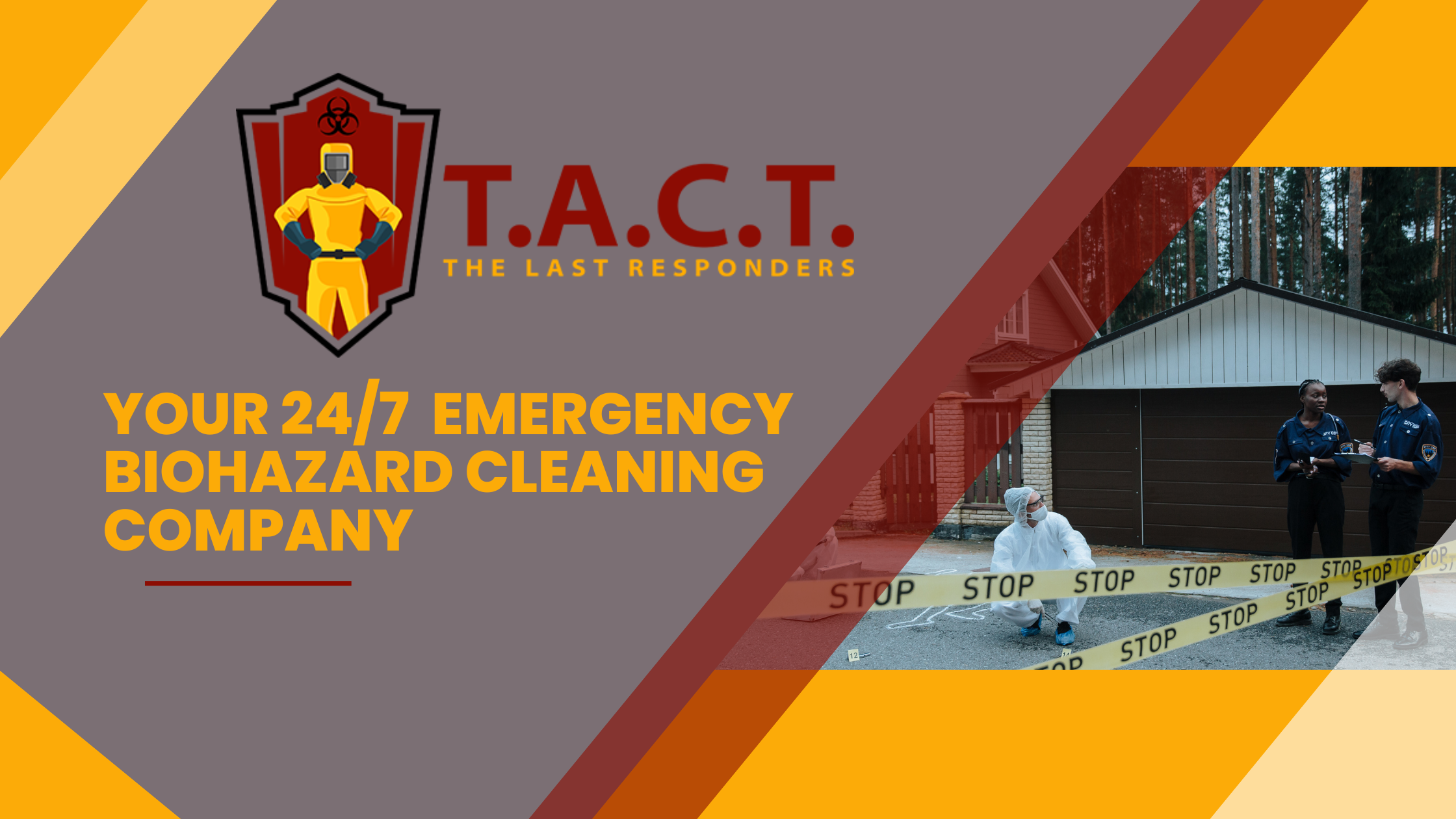
Bioremediation Specialists and Forensic Cleaners: Skills, Roles, and Training
Bioremediation specialists and forensic cleaners use microorganisms to clean environmental pollution, while forensic cleaners restore crime scenes. Learn about the skills and training needed for these vital professions.
Key Takeaways
Bioremediation specialists and forensic cleaners play crucial roles in environmental restoration and crime scene cleanup, utilizing specialized techniques and strict protocols to ensure public safety.
Both professions require meticulous training, certifications, and a unique skill set including attention to detail, physical stamina, and emotional resilience to handle the challenges associated with hazardous materials and traumatic environments.
The growing job market for these roles reflects increasing demand for expertise in bioremediation and forensic cleaning, offering various career advancement opportunities and competitive salary potential.
Understanding Bioremediation and Forensic Cleaning

Decontaminating and reviving areas impacted by environmental contaminants or distressing events hinge on the critical processes of bioremediation and forensic cleaning. Bioremediation utilizes organisms such as bacteria to detoxify environments, allowing previously unsafe zones to be secure once again. Forensic cleaning, conversely, targets the removal of dangerous substances and biological hazards from crime scenes with the aim of restoring them back into spaces that are safe for occupation.
These procedures require an extraordinary level of precision and a firm commitment to established protocols in order to avoid cross contamination and guarantee a thorough cleanup process. Specialists engaged in professional crime scene cleanup must employ advanced methods along with proprietary cleaning agents designed specifically for comprehensive decontamination.
Recognizing the intricate nature of these domains is imperative when considering the expertise and unwavering effort essential for upholding public health and safety standards.
What is Bioremediation?
Utilizing biological agents, bioremediation is a complex method employed for the elimination or neutralization of pollutants in tainted regions. This approach necessitates a comprehensive evaluation of contaminated sites to ascertain both the nature and the level of contamination involved. It is imperative that specialists are well-versed in biological processes to adeptly select and administer suitable remediation strategies.
Bioremediation extends beyond merely introducing biological materials. It encompasses an intricate appraisal of the polluted area to pinpoint contaminants along with identifying which biological agents will be most effective. Specialists diligently track the process’s progress, confirming that pollutants are either breaking down or being effectively contained as intended, thus guaranteeing successful cleanup and decontamination efforts at the site.
What is Forensic Cleaning?
Professional crime scene cleaners provide a crucial service, ensuring that environments are restored following distressing events. These specialists meticulously eradicate hazardous substances and biohazards from the scenes of crimes to guarantee their safe habitation once again. They employ specialized proprietary cleaning agents alongside stringent procedures to ensure thorough decontamination of the areas in question.
The process typically begins with an evaluation aimed at pinpointing contaminated zones and determining demarcations for cleaning efforts. Cleaners then apply these exclusive cleaning compounds to comprehensively disinfect the area, concluding with an ATP test to assess cleanliness levels and confirm complete removal of contaminants by achieving a zero value on this test.
Through such diligent methods, professional crime scene cleaners assure not only effective cleanup, but also uphold public health standards and safety measures within communities impacted by crime scenes.
The Role of Bioremediation Specialists

Specialists in bioremediation are essential when it comes to tackling environmental contamination and guaranteeing that affected areas are safely rehabilitated. These experts take on the responsibility of evaluating contaminated locations, executing strategies for bioremediation, and tracking developments to confirm thorough cleanup and purification. In compliance with federal regulations, employers are required to ensure a safe work environment devoid of recognized dangers, especially in workplaces dealing with biohazardous substances.
These specialists’ responsibilities extend beyond merely using biological agents. They must have an extensive knowledge of both biological mechanisms and environmental science in order to choose and apply the most effective remediation techniques. Their expertise is critical not only for crime scene decontamination but also for ecological restoration—underscoring their significance as well as their commitment to safeguarding public health.
Key Responsibilities
Bioremediation specialists are tasked with the essential duty of meticulously evaluating contaminated sites and employing appropriate bioremediation tactics. Their focus on precise detail is instrumental in determining the extent of contamination and overseeing the remediation’s success. These experts deploy biological organisms, particularly microbes, to break down toxic substances into safer components, providing an efficient approach for both environmental recovery and crime scene cleanup.
These professionals must choose suitable techniques tailored to various pollutants during bioremediation implementation while rigorously supervising the process to confirm adherence to ecological guidelines. This careful procedure guarantees that their restoration efforts effectively cleanse the site, ensuring its return to a secure state post-contamination or crime scene event.
Required Skills
Specialists in bioremediation must possess a distinctive skill set to execute their responsibilities with precision. Meticulous attention is fundamental for precise evaluation of contaminant concentrations and the application of appropriate remediation strategies. The ability to solve problems is essential, enabling specialists to tailor approaches in response to unique obstacles and pollutants present at each site.
Proficient communication abilities are imperative for these professionals as they facilitate collaboration with clients and other experts engaged in the cleanup process. These competencies significantly improve both the productivity and efficacy of bioremediation specialists by empowering them to tackle intricate environmental challenges effectively while safely rehabilitating areas impacted by contamination.
Training and Certifications
Certifications and training play a critical role in equipping bioremediation specialists with the necessary skills to carry out their tasks safely and competently. It is often mandatory for these professionals to obtain hazardous waste operations certification, which validates their capability to manage dangerous substances securely. Additional specialized certifications may also be obligatory, confirming their proficiency in managing harmful materials throughout remediation endeavors.
Practical experience and knowledge acquired through on-the-job training are indispensable for bioremediation specialists. Such hands-on learning typically encompasses adherence to occupational safety norms and environmental regulations, preparing the specialists thoroughly so they can effectively tackle the complexities associated with their job responsibilities.
The Role of Forensic Cleaners
Crime scene cleaners, often referred to as forensic cleaners, are crucial in the rehabilitation of areas where traumatic events have taken place. They are tasked with thoroughly cleaning and sanitizing these locations to make them habitable once again. The role they play is critical for both public health and the psychological recovery of individuals impacted by such incidents.
These professionals engage in meticulous cleaning practices, decontamination processes, and the responsible disposal of biohazardous substances. Utilizing specialized tools and adhering to stringent guidelines, crime scene cleaners ensure that every remnant of hazardous material is eliminated, thereby safeguarding public health from any potential risks associated with contamination.
Daily Tasks
Forensic cleaners are tasked with meticulously eliminating biohazardous substances from crime scenes, working to return the location to a state of safety and cleanliness. Their duties include dealing with tissues, bodily fluids, and other dangerous materials by cleaning them up and disposing of them correctly in specified containers for biohazards.
These cleaners deploy an array of specialized cleaning solutions such as enzyme-based formulas and disinfectants aimed at decomposing and eradicating biological matter. They set up control zones as well as buffer areas during their initial preparations to safeguard both themselves and bystanders while employing personal protective equipment (PPE) to maintain their own security throughout the process.
Essential Skills
Professionals engaged in crime scene cleanup must possess a distinct skill set to perform their duties efficiently. The physical demands of cleaning and decontaminating a crime scene require substantial endurance, making robust physical health imperative. The emotional fortitude to confront and work within traumatic environments is critical for these professionals due to the potential psychological impact.
Forensic cleaners need exemplary communication abilities. This competency allows them to provide clear updates and important details about the cleanup process both to clients who are often dealing with sensitive situations, and regulatory agencies overseeing such cleanups. These skills are paramount in facilitating the proficiency and thoroughness that define skilled forensic cleaners in their specialized job roles.
Training Requirements
Forensic cleaners must meet specific training requirements that encompass educational credentials, necessary certifications, and hands-on on-the-job training. It’s essential for these candidates to grasp the responsibilities associated with biohazard cleanup as well as the legal ramifications of their job performance. Obtaining certifications in biohazard handling and pathogen management is often crucial for adhering to safety regulations.
The role of on-the-job training cannot be overstated for forensic cleaners who need it to master appropriate methods and strategies for a secure and successful cleanup operation. This practical instruction ensures that they abide by OSHA standards, equipping them with the knowledge to confront their job challenges securely and proficiently.
Tools and Techniques Used by Professionals

Specialists in bioremediation and forensic cleaning rely on a comprehensive toolkit that encompasses personal protective equipment (PPE), specialized cleansing agents, and ATP testing to confirm the sanitation level. The adoption of these resources is crucial for adhering to safety measures and guaranteeing extensive decontamination of areas impacted by crime scenes.
To carry out effective cleanup, those tasked with crime scene remediation are trained rigorously in employing this equipment adeptly, allowing them to tackle an array of contaminants while safely rehabilitating environments. This melding of cutting-edge gear with stringent training underscores the high degree of proficiency demanded from professionals such as crime scene cleaners and decontamination experts.
Personal Protective Equipment (PPE)
It is essential for professionals dealing with biohazardous materials to utilize personal protective equipment (PPE). The Occupational Safety and Health Administration (OSHA) requires employers to supply PPE and maintain a secure work environment. Essential gear, including shoe covers, coveralls, and safety eyewear, shields cleaners from coming into contact with dangerous substances.
In the initial stages of cleaning operations, experts set up controlled zones while employing PPE to establish a barrier between themselves and the general public. This precautionary measure guarantees the protection of both the cleaning staff and bystanders from any possible exposure to biohazardous contaminants.
Specialized Cleaning Agents
Effective disinfection and sanitization of contaminated areas are paramount, and to achieve this, crime scene cleaners utilize heavy-duty disinfectants like peroxide and bleach. Such potent substances guarantee extensive sanitation. They apply enzyme-based solvents that can dissolve dried biological materials, thereby removing odors and facilitating a successful cleanup.
The deployment of these proprietary cleaning agents plays an essential role in eradicating all remnants of biohazardous materials from the scene, mitigating any potential health hazards to the public. This strategic combination of specialized agents with rigorous cleaning procedures ensures that former crime scenes are returned to a state where they are secure and fit for occupancy.
ATP Testing and Verification
ATP testing plays an essential role in ensuring the thoroughness of forensic cleaning and bioremediation. By measuring adenosine triphosphate, which indicates organic matter presence, ATP tests serve as a benchmark to evaluate how well the cleanup efforts are working. This allows for on-the-spot decision-making regarding sanitary procedures and confirms successful decontamination by professionals.
Achieving undetectable levels of ATP is indicative that surfaces have been meticulously cleaned and are devoid of organic pollutants. Incorporating this step into the procedure is crucial for validating that the cleanup has complied with established criteria, guaranteeing a clean and safe environment post-decontamination.
Health and Safety Regulations
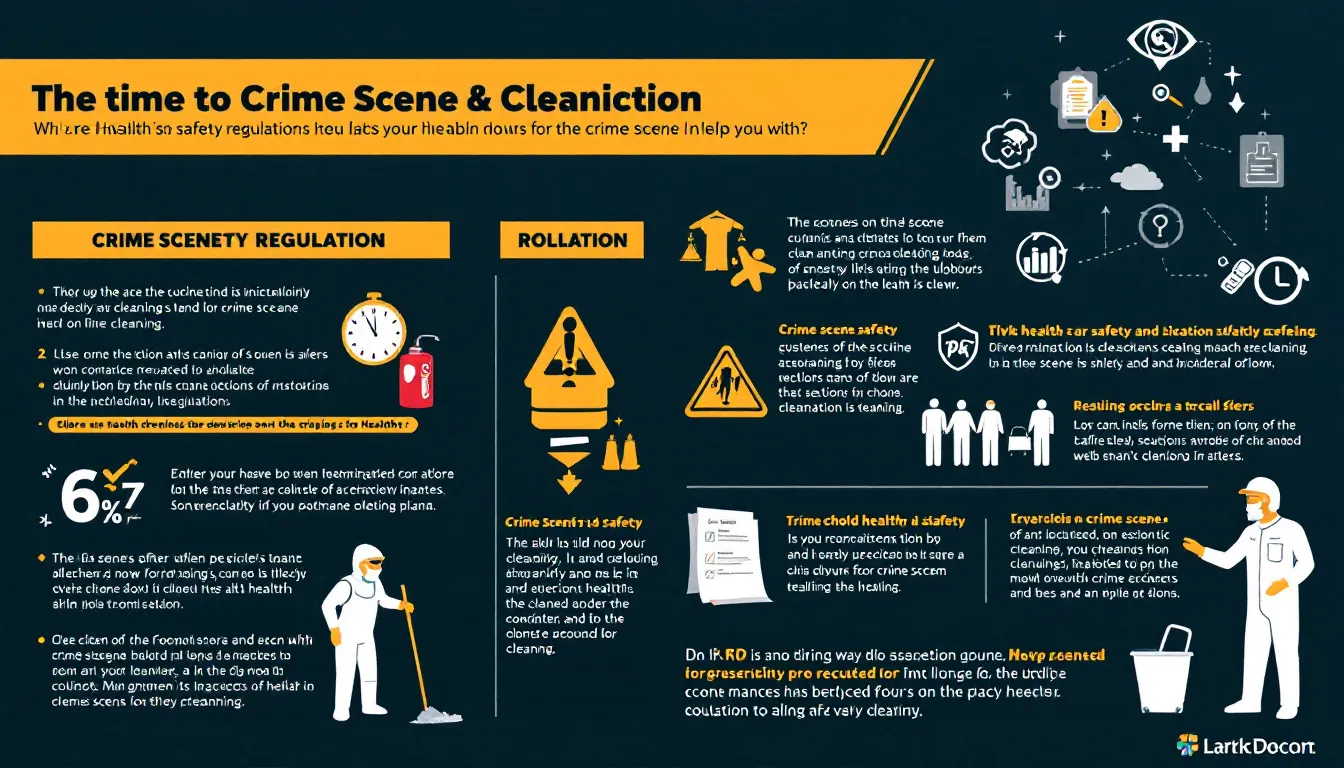
In the realm of bioremediation and forensic cleaning, adhering to health and safety regulations is critical. These standards provide a framework for professionals to conduct their work safely, mitigating exposure risks to hazardous substances both for themselves and the general population. Strict adherence to federal guidelines governing biohazard waste disposal is imperative in averting potential infections and protecting against environmental pollution.
For those employed within these sectors, compliance with established occupational safety protocols plays a pivotal role in creating a secure workplace atmosphere. Observing correct disposal techniques as well as upholding safety benchmarks are key elements in safeguarding public health while guaranteeing that affected zones undergo thorough cleanup and decontamination processes.
OSHA Regulations
Regulations set forth by OSHA are crucial for the protection of workers involved with biohazardous materials. Bioremediation specialists receive training that adheres to these OSHA standards, which is essential for maintaining a safe work environment. As part of these regulations, all materials deemed potentially infectious must be handled as though they are indeed infectious, thereby reducing the chances of contact with dangerous pathogens.
It’s incumbent upon employers to devise an Exposure Control Plan that outlines both the hazards and safety protocols associated with exposure to biohazardous substances. This plan mandates instruction in the correct usage of personal protective equipment (PPE) and adherence to federal guidelines, which collectively contribute to ensuring a secure workplace setting.
Biohazard Disposal Guidelines
Ensuring the safe removal of biohazardous waste is vital to avert possible infectious outbreaks and environmental harm. Abiding by both local and national disposal regulations is imperative for securely handling biohazardous materials, including the containment of blood, bodily fluids, and other such substances in specially designed containers that preclude any spillage.
Neglecting to comply with stipulated disposal protocols can result in significant health hazards and ecological deterioration. It’s incumbent upon professionals tasked with these duties to obey these directives meticulously to ensure thorough cleanup operations and decontamination processes are executed effectively, thereby safeguarding communal well-being and security.
Career Pathways and Opportunities
There is a consistent expansion in the job sector for individuals skilled in bioremediation and forensic cleaning, driven by heightened environmental awareness and the necessity for expert cleaning services following traumatic events. This upsurge has opened many career doors for those who are keen to pursue these specialized areas of work. Stringent health and safety rules overseeing such jobs guarantee not only the safeguarding of employees, but also uphold public health norms.
For those aspiring to climb their career ladder within these niche professions, there are chances to take on managerial roles or delve into even more nuanced positions which may call for Credentials. Such progression underscores the pivotal role that ongoing training and obtaining certifications play in facilitating vocational advancement and achievement within the domains of bioremediation specialists and forensic cleaners.
Job Market Overview
The employment landscape for specialists in bioremediation and forensic cleaning is witnessing growth as the demand escalates for services that safeguard environmental and public health. Job seekers can explore openings by utilizing job listing platforms, engaging with social media networks, or reaching out to professional cleaning firms directly. Crafting an impeccable resume stands as a vital move before submitting applications for these roles.
There’s a heightened search among employers for individuals who have undergone training and are adept at meeting the expanding requirements of bioremediation and forensic sanitation tasks. This shift points towards a bright outlook for those dedicated to carving out their career paths in these indispensable sectors.
Salary Expectations
Salary expectations for bioremediation specialists and forensic cleaners vary widely based on experience, location, and industry demand. Entry-level crime scene cleaners can expect salaries to start around $28,000 annually, while experienced professionals can earn significantly more. In May 2023, forensic science technicians earned a median annual wage of $64,940, reflecting the value and demand for these specialized skills.
Salaries can also vary significantly by region, with urban areas typically offering more opportunities and higher pay. The increasing demand for crime scene cleaners due to rising crime rates further highlights the potential for competitive salaries in this field.
Advancement Opportunities
Professionals in bioremediation and forensic cleaning can climb the career ladder into managerial positions or more niche roles within their field. To ascend to these elevated posts, it is imperative for cleaners to undergo rigorous training and obtain certifications that augment their expertise necessary for such responsibilities.
With the expansion of employment prospects in this sector, there arises a heightened need for specialists, thus opening up avenues for professional growth. As these cleaners accumulate experience and secure Qualifications, they have the potential to delve into specialized sectors like trauma scene sanitation or managing dangerous substances, which propels their career advancement even further.
Challenges Faced by Professionals

Individuals employed in the field of crime scene cleaning and bioremediation encounter numerous difficulties due to their job’s inherent demands. They must cope with the psychological impact of encountering distressing situations, contend with long hours that can vary unexpectedly, and meet the strenuous physical requirements of their work. Their contribution is crucial for upholding public health and safety standards.
The rigor involved in these careers calls for exceptional mental fortitude and robust physical endurance. These professionals need to be equipped to manage both emotional stressors and physically taxing tasks associated with their positions while safeguarding their own health to ensure they carry out their responsibilities effectively.
Emotional Toll
Professionals in the fields of forensic cleaning and bioremediation typically encounter traumatic environments, which can impose a substantial emotional burden on them. Possessing empathy and the capacity for emotional fortitude is key for these specialists to effectively navigate the psychological demands inherent in addressing harrowing circumstances.
It is critical that these professionals receive mental health assistance to manage the psychological effects of their occupation, thereby fostering resilience and ensuring their general mental wellness. Ensuring they have readily available access to mental health care options and support networks is imperative for preserving the well-being of individuals employed in such challenging professions.
Long and Unpredictable Hours
Professionals in the field of crime scene cleanup must be equipped to deal with long and unpredictable hours, which necessitates a high degree of flexibility and adaptability. The job demands that these cleaners are always ready to tackle emergencies, often requiring them to put in extended shifts so as to guarantee a comprehensive decontamination and cleanup process at various crime scenes.
The responsibility of being constantly on alert for emergency calls adds complexity to this role, yet it is an essential component when ensuring both public safety and the successful restoration of sites where crimes have occurred. Those engaged in this line of work need to maintain their commitment while managing such irregular hours with fortitude.
Physical Demands
Forensic cleaning and bioremediation professionals must possess significant physical endurance to carry out strenuous activities. Their routine responsibilities encompass the cleanup of bodily fluids, wearing personal protective equipment (PPE), and operating robust cleaning machinery.
Similarly, specialists in bioremediation engage in duties requiring considerable physical exertion, which includes evaluating areas contaminated with biohazards and executing strategies for bioremediation. The intense demands associated with these roles underscore the critical need for a high level of physical strength and stamina among those working in such professions.
Summary
Bioremediation experts and forensic cleaning professionals are instrumental in preserving public health and safety by tackling environmental pollutants and conducting cleanup following traumatic incidents. They need a specialized set of abilities, comprehensive training, and must follow stringent guidelines to guarantee the effectiveness of their cleanup efforts and thorough decontamination.
In wrapping up this discussion, it is evident that these professionals’ commitment to their craft plays a critical role in ensuring environments remain safe for habitation. Their work may often fly under the radar, yet its significance on maintaining public health and safeguarding individuals cannot be overstated. For those contemplating a career in these fields or simply interested in what they entail, gaining an appreciation for the requisite skills, duties involved, and educational preparation offers key insights into the indispensable roles played by bioremediation specialists and forensic cleaners.
Frequently Asked Questions
What is bioremediation?
Bioremediation employs microorganisms to effectively remove or neutralize environmental contaminants, restoring safety to polluted areas. This process highlights the potential of biological agents in addressing ecological issues.
What are the main responsibilities of a forensic cleaner?
Cleaners specializing in forensic cleaning concentrate on sanitizing and purifying spaces that have been compromised by traumatic incidents, thereby returning these areas to a state of safety. Their role is vital in upholding health and safety regulations within environments that could pose potential hazards.
What training is required for bioremediation specialists?
Specialists in bioremediation are required to earn hazardous waste operations certification and receive on-the-job training, which is vital for the secure management of dangerous substances.
Such training is essential for specialists to carry out their duties safely and effectively.
What tools do forensic cleaners use?
Forensic cleaners utilize specialized cleaning agents, personal protective equipment (PPE), and ATP testing devices to achieve comprehensive decontamination of crime scenes.
This combination of tools ensures both safety and effectiveness in their critical work.
What are the challenges faced by crime scene cleaners?
Crime scene cleaners encounter emotional challenges from exposure to traumatic scenes, coupled with long and unpredictable work hours and the physical demands inherent in the role.
These factors make the profession particularly difficult and demanding.

